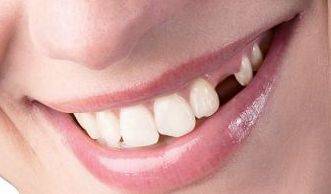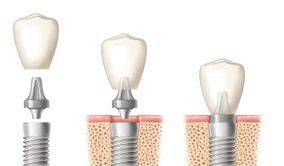Dental Implants – Tooth replacement and Denture stabilisation
Dental implants are an artificial replacement for a tooth’s root. Precision made titanium screws that are fitted directly into your jawbone and hold crowns or false teeth in place, in the same way that roots support natural teeth.
Looked after properly, implants can last for several years’ even decades. They are considered the most desirable tooth replacement.
WHY DENTAL IMPLANTS?
- Comfort – filling gaps left by missing teeth restores chewing enjoyment
- Appearance – smile with confidence again
- Preserve – prevents the need to cut natural teeth for bridges
- Fix – dentures to stop movement or replace completely
- Stability – neighbouring teeth are stopped from the slow drift into the gap that can cause them to destabilise & be lost also
Dental implants require the support of the jawbone to be implanted. This has to be thick and strong enough to hold the screw. So it is the case that on occasion implants are not possible or more complex grafting of bone required.


Dental Implant Treatment Assessment:
The most important part of the treatment is the assessment when you will be involved in the decisions about planning your treatment. So there will be plenty of opportunity to ensure the treatment is right for you. A 3D CT scan will be required to accurately measure the bone to see that implants are possible and to size and position them.
 Implant Placement Step 1:
Implant Placement Step 1:
The first part of the treatment involves drilling a small hole into the jawbone and fitting the implants into position. This stage is done under local anaesthesia so you will be free of any pain. Once the implant is securely in place it will be left to heal for around 3 to 4 months. The bone literally bonds to the Implant in a process known as osseointegration making the implant strong enough to bite on when a tooth is fixed.
Fixing the teeth Step 2:
Once the success of the implant’s integration with the jawbone has been established, an intermediate screw called an abutment is attached to the implant. This is the connector to which a crown, bridge or denture can be fixed.
Implants to fix loose dentures
Loose or bulky dentures can be a huge source of dissatisfaction with false teeth. Implant-supported dentures may be the solution that you need. Dental implants can be used to give additional support to dentures rather than just the gums. Support is achieved via multiple locator attachments on the base of the denture, which can be snapped onto the dental implants like Press-stud fasteners. Usually, a minimum of 4 implants is required in the upper jaw and 2 in the lower jaw.
